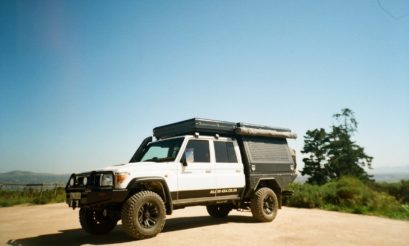“Preparedness and the willingness of employees to adapt to new ways of doing business are getting the wheels of the retail motor business turning again,” commented Mark Dommisse, the Chairman of the National Automobile Dealers’ Association (NADA). “This follows a period of enforced total lockdown and a gradual return to operations.”
He was speaking on a recent webinar on matters affecting auto retail business. The other panellists on this webinar, which was watched by more than 250 people, were Ryan Seele, the Managing Director of the Mortimer Motor Group, and Ward Huxtable, Dealer Principal at Combined Motor Holdings and Chairman of the Ford Dealer Council.
“Fortunately, motor retailers are a resilient bunch who have already faced a host of challenges over the years, from the global economic downturn in 2008/9 to disruptions caused by industrial action,” continued Dommisse.
“The Covid-19 pandemic, however, is an even tougher challenge and we at NADA are proud of the way our members used the total lockdown to relook their business plans and the manners in which they will do business in the future. This put them in a strong position to prepare in detail for the staged reopening of their businesses when this occurred.”
Downsizing the workforce was a major topic and the general feeling is that members are doing their utmost to retain staff instead of retrenching. A survey conducted during the seminar showed that a cut of 20% in headcount is expected in the upcoming months, although Dommisse urged those currently using short time and lower remuneration to retain staff, to try and continue doing so.
At this stage, the main contributor to dealer income is through aftersales, with many customers having cars that have overrun stipulated service intervals.
New and used car sales were slow in May, but the pace is expected to increase in June as potential buyers fear previously unexpected price increases on new models due to the weakness of the rand, and may buy existing stock.
There is an expected, substantial inflow into the market of used vehicles from rental companies, who are deflecting due to the lack of business, particularly in the tourism industry. Rental companies have been buyers of substantial numbers of new vehicles in recent years and are a valuable supplier to the pre-owned market.
“This will be a once-off occurrence which will improve the sales rate of pre-owned vehicles. But the problem is that the decrease in the overall size of the rental fleet will limit the availability of these cars in the future,” commented Ryan Seele, MD of the Mortimer Motor Group.
Sales of used cars is seen as an important contributor to the income generation for dealerships in these times. Discussion among the panelists around the price of used cars indicated that they were holding up to pre-Covid-19 levels, and Ward Huxtable said that the expected increased prices of new models would pull used vehicle prices along.
Brandon Cohen, convenor of NADA’s Legal and Compliance Committee, spelled out the various steps that need to be taken when an employee at a dealership is infected with the virus. This involves informing the Department of Health and the Department of Employment and Labour (COVID 19 hotline 0800 02 9999), conducting an incident-based risk assessment at the dealership to determine the need to temporarily close the facility, investigating the mode of exposure to ensure whether the necessary controls and PPE were in place, and then providing administrative support to any contact tracing measures implemented by the Department of Health.








